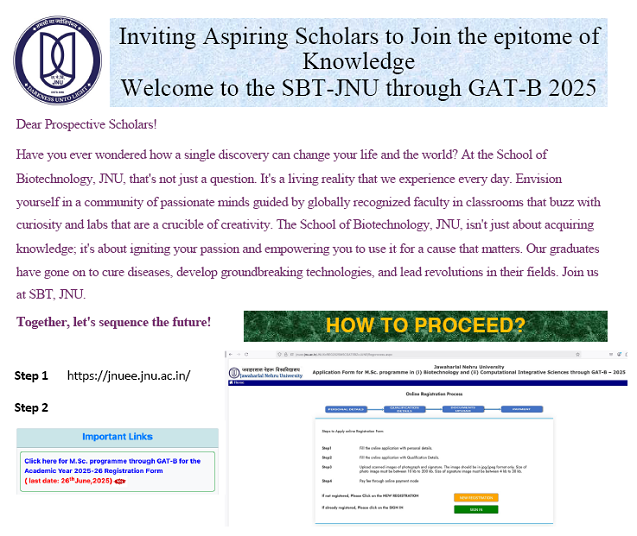Skip to main content

The School of Biotechnology (SBT) was founded in 1985 as the first human resource centre of Biotechnology by the Department of Biotechnology, Ministry of Science and Technology, Government of India. The school offers Masters and PhD programs in Biotechnology rooted in imparting multidisciplinary skills which allow the students to have their career in Biotechnology and develop their innovative ideas that can translate into bio-entrepreneurship. Various elective courses floated by experienced faculty of the school enables the students to choose and get specialized in the area of their research interest. The school is equipped with faculty members having graduated from reputed academic institutions and universities of our country and abroad with diverse and inter-disciplinary backgrounds aligning with national strategic development polices and their demands. The school’s academic and research programs provide basic to advanced infrastructure for the students to enhance their technical and innovation skills. Faculty members receive research support from different funding agencies, including DBT, DST, ICMR, CSIR, and DRDO etc. and some of them have been able to spin-off bio-business incubated at JNU. The school has been awarded UGC-SAP, DST-FIST, and DBT-BUILDER programs in participation with other schools of the university. Our alumni are placed in academic/scientific positions in many reputed national and international universities/institutes worldwide. Some of them work in prominent biotechnology companies and some have started their own companies. SBT's mission is to expand its reach and to nurture innovative minds through education, professional development, and advancements in biotechnology knowledge.

